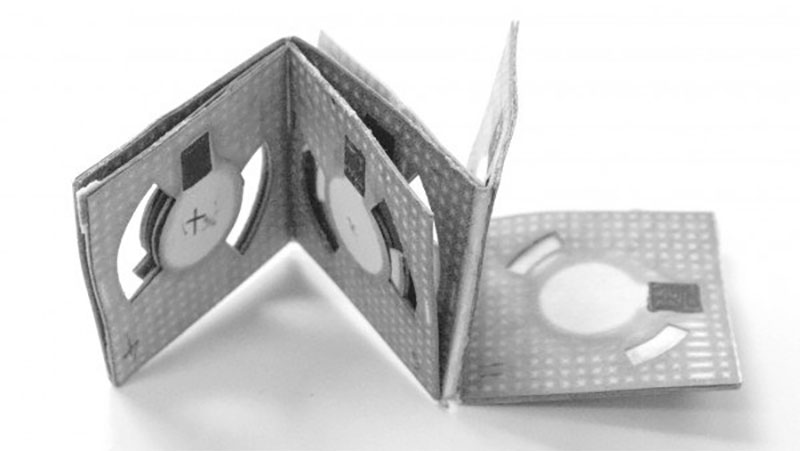This foldable paper battery is powered by bacteria
Just like origami

An inexpensive, foldable paper battery has been developed by engineer Seokheun Choi, powered by a single drop of bacteria-containing liquid. It's designed for use in remote areas.
Choi, who works at Binghampton University, discovered that bacteria can generate enough power to run simple sensors. "Dirty water has a lot of organic matter," he explained. "Any type of organic material can be the source of bacteria for the bacterial metabolism."
The battery, which can fold up to the size of a matchbook, is created using paper, nickel, carbon and wax - simple materials that we have lots of. That means that the total cost of the device is just five cents. "Paper is cheap and it's biodegradable," Choi said. "And we don't need external pumps or syringes because paper can suck up a solution using capillary force."
Paper, please
Right now, paper-based sensors that can monitor different biological properties require a hand-held, powered device for analysis. Choi hopes that he can create a self-powered system in which a paper-based battery would create enough energy to run the biosensor.
The ultimate goal is to be able to build a tool for the developing world that can diagnose diseases cheaply and reliably.
To that end, Choi has received a three-year grant of $300,000 from the US National Science Foundation for his work.
The details of the battery were published in the journal Nano Energy.
Sign up for breaking news, reviews, opinion, top tech deals, and more.
